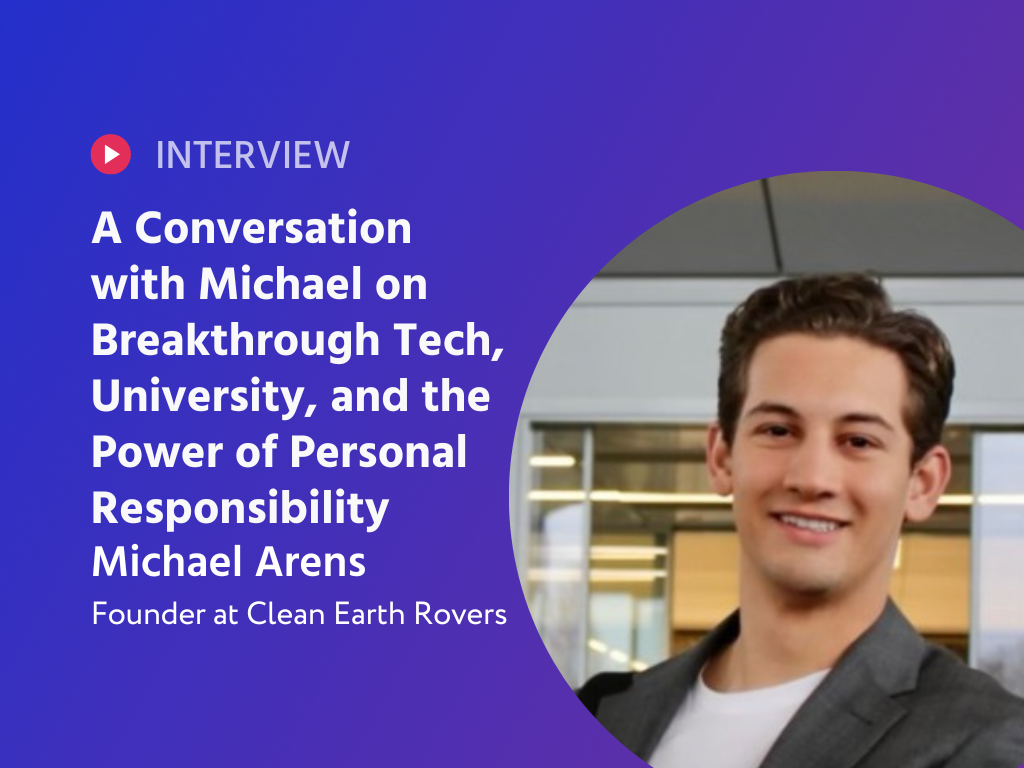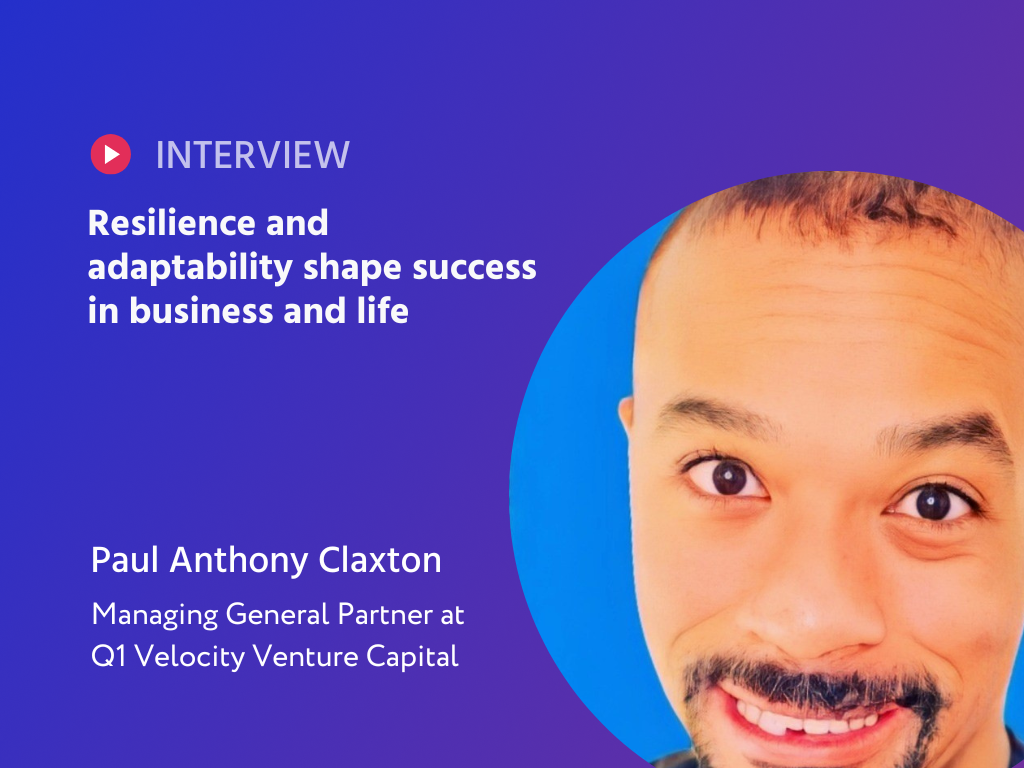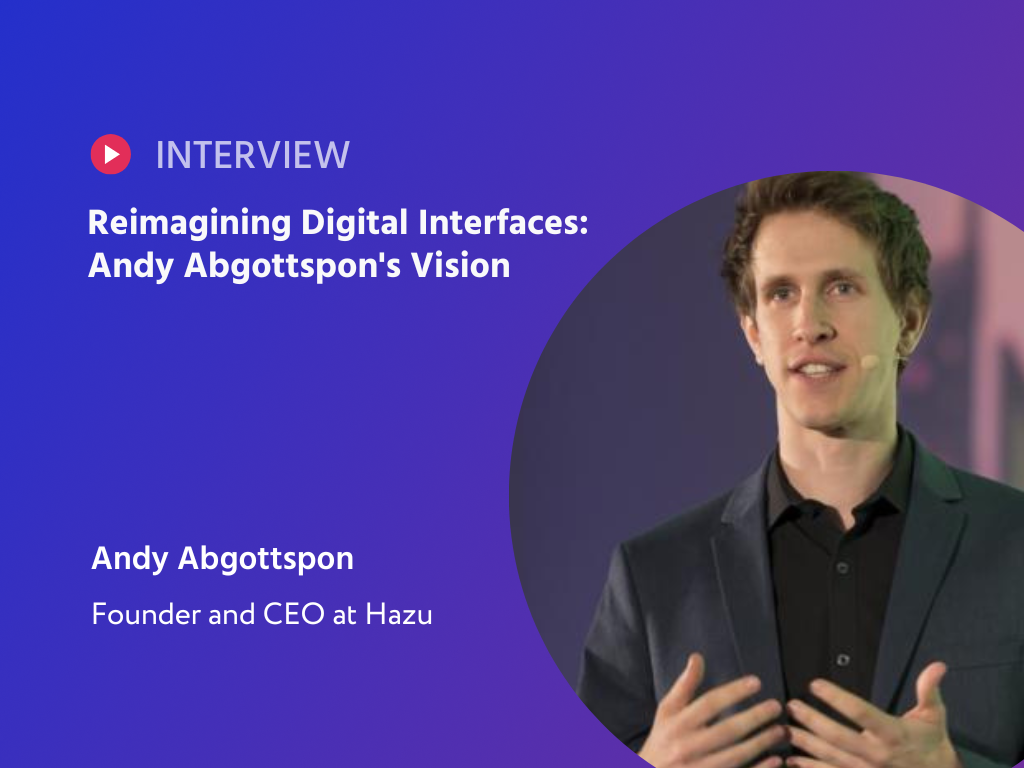In this edition of Bright Founders Talk, we’re thrilled to host Bertrand Charpentier, the Founder, President, and Chief Scientist of Pruna AI. With a strong academic foundation, including a PhD from the Technical University of Munich, Bertrand brings a rich perspective on the future of AI and the energy challenges it faces.
Pruna AI tackles one of the most pressing issues in the AI world today: the enormous computational power—and energy—it takes to run modern AI models. To put it into perspective, Bertrand notes that if everyone in Germany generated just five ChatGPT pages, it would take two nuclear plants running non-stop to sustain it. Pruna AI's mission is to make AI models more efficient by "compressing" them, much like zipping image files—only here, the files are powerful machine learning models. This innovation not only reduces energy consumption but also cuts down operational costs and improves speed.
In our conversation, Bertrand shares his journey from academic research into entrepreneurship, the formation of his founding team, and the practical implications of Pruna AI’s technology for businesses and society. It’s a compelling story about making AI greener, faster, and smarter.
From PhD to Pruna: How Bertrand Is Making AI Greener, Faster, and Smarter
When Bertrand Charpentier started thinking about launching a company, he didn’t have the classic entrepreneur story of childhood lemonade stands or teenage side hustles. Instead, his path was filled with lab work, papers, and countless hours deep in AI theory. But what lit the entrepreneurial spark was a growing frustration with how inefficient and expensive it was to simply run AI models. “Just reproducing one of my research papers cost $10,000,” Bertrand says with a laugh—not out of humor, but out of exasperation. That number wasn’t just a line item—it was a red flag that pushed him to dig into a bigger problem.
The breakthrough came when he zoomed out and saw that everyone—from researchers to big corporations—was feeling the heat (and the electric bill). AI models, especially the big ones, eat up energy like there’s no tomorrow. “If everyone in Germany generated five pages with ChatGPT, you'd need two nuclear plants running full-time,” Bertrand points out. That was the wake-up call. The mission became clear: build something that helps compress AI models, so they’re lighter, faster, and most importantly, more sustainable. Enter Pruna AI, a startup that does for models what WinZip does for files—only with a lot more brainpower behind it.
If everyone in Germany generated five pages with ChatGPT, you'd need two nuclear plants running full-time
Bertrand’s co-founding journey wasn’t a case of networking at tech meetups or pitching strangers. Instead, it felt more like assembling a dream team from his own past. His co-founders? A mix of former students, old study buddies, and even his PhD supervisor. “It was passive networking,” he says. “Just being genuinely interested in what people were doing during research and studies.” That organic formation of the team turned out to be a strength—shared passion, deep knowledge, and zero fluff. With that, Pruna wasn’t just an idea anymore. It was a mission backed by people who had lived the problem firsthand.
Compress to Impress: How Bertrand’s Team Is Slashing AI Costs (and Carbon)
Bertrand isn’t trying to reinvent the wheel—he’s just making it run faster, leaner, and a whole lot greener. Instead of building new large language models (LLMs) from scratch, Pruna AI is focused on improving what already exists. Think of it like tuning up a race car rather than designing a new one. “We compressed 10,000 models just to prove we could scale,” Bertrand says casually, like it’s no big deal. Their approach? Take the massive catalog of models from platforms like Hugging Face and run them through Pruna’s compression tech. The result: the same intelligence, delivered with less power and way less waiting.
We compressed 10,000 models just to prove we could scale
What’s surprising is how Pruna AI dodges one of the biggest hurdles in AI development—data. While most companies are buried under mountains of data issues, Bertrand’s team found a clever workaround. Since they’re offering compression as a software solution, their clients can use their own data privately, on their own systems. No handover, no legal headaches. It’s a rare perk in the AI world, and it also means they can focus purely on making sure the models stay sharp post-compression. Quality, as Bertrand explains, isn’t measured by one number—“The best is to have a lot of evaluation metrics,” he says, because quality in AI can mean sharp details, consistent style, or even something more abstract.
And if you’re wondering whether this all actually matters in the real world—oh, it does. One of Pruna’s clients uses image generation to produce five million images per day for things like social media assets. That kind of scale can rack up a cloud bill in the millions. Compressing the model to run just twice as fast slashes both the costs and the environmental impact in half. Two wins for the price of one. “Faster models mean smaller bills—and less energy burned,” Bertrand sums it up. And in a time when AI is booming and sustainability is no longer optional, that’s the kind of innovation businesses are ready to bet on.
Balancing Ethics, Energy, and Europe: Bertrand’s Vision for Smarter AI
Bertrand isn’t here to play it safe—he’s out to make AI not only smarter, but also more ethical and accessible. At Pruna AI, he’s zeroed in on sustainability as the company’s first major ethical focus. Why? Because it's a win-win. Cutting down compute costs helps the bottom line, sure, but it also slashes the environmental footprint. “Efficiency is good for business—and good for the planet,” Bertrand puts it simply. In a world where AI training guzzles resources like a data-hungry monster, making models leaner isn’t just nice to have, it’s crucial. The real kicker? Efficient AI also opens the door for smaller companies to compete, breaking the monopoly of big tech’s deep pockets.
Efficiency is good for business—and good for the planet
And speaking of underdogs, Bertrand’s proud of the European edge his team brings to the table. Europe, he says, often flies under the radar when people talk about cutting-edge research—but that’s changing. With deep academic roots, a pool of brilliant talent, and a more balanced cost of hiring compared to the U.S., building in Europe has real advantages. In fact, even AI giants like OpenAI are setting up shop in places like Munich (which happens to be Pruna’s home turf), drawn by the same research ecosystem and talent network. For Bertrand, it’s not just about geography—it’s about building smart, sustainable innovation in the right environment.
Of course, it’s not all smooth sailing. Bertrand is quick to point out that the European administrative maze is real—especially when your company operates across borders like Pruna does, with offices in Munich and Paris. Juggling paperwork, legal requirements, and regulatory quirks from multiple countries takes time and patience. “Every new office means more lawyers,” he jokes, half-laughing, half-serious. But there’s hope: new initiatives are on the horizon to simplify the process of starting and scaling EU-wide companies. Until then, Bertrand’s just rolling up his sleeves and getting it done—one compressed model and one bureaucratic hurdle at a time.
Small, Smart, and Specialized: Bertrand’s Bold Take on the Future of AI
Bertrand isn’t placing his bets on ever-larger AI models. Quite the opposite. He sees the future leaning toward smaller, task-specific models that get the job done better, faster, and cheaper. Why train a digital know-it-all when all you really need is a genius in one field? “You don’t need a model that knows every U.S. president—just one that understands medicine if you’re building for doctors,” he explains. This vision aligns perfectly with Pruna AI’s sweet spot: making models leaner and more efficient for real-world use. As companies become more cost-conscious and application-focused, Bertrand believes niche models will rule the next AI wave.
But Bertrand’s not just gazing into the future—he’s watching the present evolve in cycles. Instead of breakthroughs coming from brand-new inventions, he’s fascinated by how old ideas are being recycled, scaled, and remixed in powerful new ways. Autoregressive models, diffusion models—what once dominated one domain is now crossing into another. “It’s not always about something radically new,” he says, “but about how you recombine what already exists to unlock new value.” Whether it’s OpenAI switching image generation to autoregressive models or Inception Labs bringing diffusion back into LLMs, Bertrand sees a future that’s as much about clever orchestration as it is about invention.
It’s not always about something radically new, but about how you recombine what already exists to unlock new value
For those just starting out—or staring down the intimidating path of entrepreneurship—Bertrand has some refreshingly honest advice: don’t overthink it. Just start. The road won’t be smooth, but that’s the point. “You won’t ever be fully prepared. You just have to go in and start,” he admits. One trick that’s helped him navigate the chaos? Setting aside a few sacred hours a week of deep, uninterrupted focus. No notifications, no meetings—just thinking. Because as the startup picks up steam and the inbox fills up, clarity becomes a rare and powerful tool. And in Bertrand’s world, focus isn’t just a productivity hack—it’s a survival skill.




